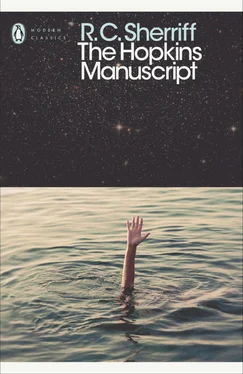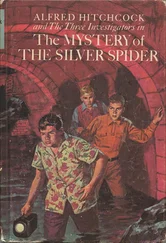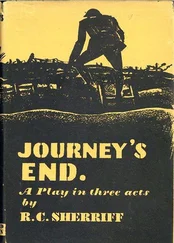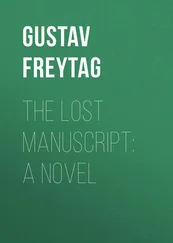Роберт Шеррифф - The Hopkins Manuscript
Здесь есть возможность читать онлайн «Роберт Шеррифф - The Hopkins Manuscript» весь текст электронной книги совершенно бесплатно (целиком полную версию без сокращений). В некоторых случаях можно слушать аудио, скачать через торрент в формате fb2 и присутствует краткое содержание. Год выпуска: 2018, ISBN: 2018, Издательство: Penguin Books, Жанр: sf_postapocalyptic, humor_satire, на английском языке. Описание произведения, (предисловие) а так же отзывы посетителей доступны на портале библиотеки ЛибКат.
- Название:The Hopkins Manuscript
- Автор:
- Издательство:Penguin Books
- Жанр:
- Год:2018
- ISBN:978-0-241-34908-3
- Рейтинг книги:4 / 5. Голосов: 1
-
Избранное:Добавить в избранное
- Отзывы:
-
Ваша оценка:
- 80
- 1
- 2
- 3
- 4
- 5
The Hopkins Manuscript: краткое содержание, описание и аннотация
Предлагаем к чтению аннотацию, описание, краткое содержание или предисловие (зависит от того, что написал сам автор книги «The Hopkins Manuscript»). Если вы не нашли необходимую информацию о книге — напишите в комментариях, мы постараемся отыскать её.
The Hopkins Manuscript — читать онлайн бесплатно полную книгу (весь текст) целиком
Ниже представлен текст книги, разбитый по страницам. Система сохранения места последней прочитанной страницы, позволяет с удобством читать онлайн бесплатно книгу «The Hopkins Manuscript», без необходимости каждый раз заново искать на чём Вы остановились. Поставьте закладку, и сможете в любой момент перейти на страницу, на которой закончили чтение.
Интервал:
Закладка:
But there is no time for anecdote. I must write my story, plainly and simply, while I have the strength, and sufficient light to see by.
The idea of writing my story has given me quite a lot of happiness. I alone, of all these hopeless people, shall die with the knowledge that I leave something behind that may one day be found and valued as highly as the Rosetta Stone or the priceless manuscripts of Egypt.
In those happy, peaceful days before the Cataclysm I spent much time in searching for the relics of people who lived before history began. History has ended now, but one day it may begin again – one day my story may be found and I shall stand amongst the immortals. Tacitus, Ptolemy and the Venerable Bede produced work that lit the dark ages of the past. My story may be the solitary torch that lights the dark age that followed the Cataclysm, for when it is finished I shall screw it tightly in my thermos flask and conceal it behind the bricks of my fireplace.
I am a bachelor, aged fifty-three. My name is Edgar Hopkins and I come of an old and honourable family of Worcestershire squires. The fortunes of my family have declined somewhat in recent years, and in 1912 my father sold our old family estate at Stoatcastle to the Victrix Sand and Gravel Company and retired to Chislehurst.
I was educated at Winchester and Jesus College, Cambridge. Upon taking my degree of Bachelor of Arts I accepted the position of assistant arithmetic master to Portsea Grammar School, a post which I held, I think, with distinction for twenty-three years until the death of my father at last provided me with a small but sufficient legacy upon which to retire.
I have always taken the keenest interest in poultry breeding. For three successive years I carried off first prize for Rhode Island Pullets at the Portsea Poultry Show, and my brochure upon ‘The Successful Breeding of the Domestic Fowl’ was very favourably reviewed in the Poultry Gazette. A carping and small-minded criticism in Our Feathered Friends did not dismay or surprise me, for jealousy is unfortunately as rampant amongst poultry breeders as it is amongst metallurgists, in whose grudging world I also, I might say, ranked as an expert.
My retirement afforded me the opportunity of gratifying my interest in poultry breeding to a wider extent. In the summer of 1940 I purchased a small but charming estate upon the outskirts of the village of Beadle in Hampshire. It was known as Beech Knoll and consisted of a nice little house upon the summit of a small hill 580 feet above sea-level (a fact to which I owe my life). The terraced gardens, rich in old hollies and yews, sloped pleasantly down to a well-drained, sheltered meadow of five acres – a veritable paradise for poultry.
I brought my best hens from Portsea, secured six excellent cockerels from a good breeding farm in Kent, and settled down to a life of simple but vigorous purpose.
Nature has provided me with a happy gift for friendship, a witty but not unkind tongue and, I think, a restful, pleasant personality. I soon became well acquainted with my neighbours, from whom I selected Dr Perceval and Colonel John Harrison as my most intimate friends. I spent many happy evenings with these two gentlemen, discussing my poultry until long past midnight, and it was a great regret to me when both of them decided to go and live farther away.
But before he left, Dr Perceval engaged my interest in a hobby which was destined to play a remarkable part in my life, and without which I should never have gained the knowledge and authority to write this story.
Dr Perceval was a keen amateur astronomer, and had constructed a small observatory in the summerhouse of his garden. My eager imagination was quickly stimulated by my first glimpse of the moon through his magnificent telescope. I was fascinated by that brilliant, crater-pitted little world of rock-strewn silence, and I spent many hours with my eye fixed to the telescope as the old doctor patiently explained to me those far-off mountains and awe-inspiring chasms.
Within a few months I became, through the doctor’s influence, an associate member of the British Lunar Society – a learned body devoted entirely to the study of the moon.
The Society’s headquarters were at 76 Barbara Street, Covent Garden, and consisted of the whole top floor. There was a large lecture-room, a small office for the Secretary and a refreshment-room that quickly became famous for its sandwiches composed of chicken supplied from my estate.
On the second Tuesday of every month we met to hear a paper read by a distinguished visitor or member of the society. A stimulating debate would follow, and the evening would close with a pleasant, informal adjournment for coffee and sandwiches in the anteroom. So easy and happy was this final half-hour of the evening that the distinguished visitor would frequently unbend and almost become one of us. Upon one occasion I engaged Professor Rolleston-Mills of Greenwich Observatory in conversation for nearly twenty minutes. I explained to him that the unusual whiteness of the chicken meat in the sandwiches and their exceptionally delicate flavour was due to a deliberate inbreeding of a selected strain of Wyandotte. We had a hearty laugh when he described me as a ‘man of many parts’!
This monthly meeting of the British Lunar Society became the most looked-forward-to event of my peaceful life. Upon the second Tuesday of each month I would rise especially early, complete the necessary attentions to my chickens as quickly as possible, snatch a hasty lunch and catch the 2.14 train for London.
This train reached Waterloo at 4.23 and gave me the opportunity of attending a cinema theatre before our meeting began at 6.30. We usually departed at about eight o’clock, and there was time for me to dine quietly at a pleasant little Soho restaurant before my train left for home at 9.52.
It gave me a ‘night out’ which I enjoyed the more because I had become rather a ‘country cousin’ in the past few years, and I never failed to return home with a sense of mental well-being.
I am afraid old Police Constable Wilson used to look askance at me as I strutted up Burntash Lane towards my home at well past midnight, and perhaps it is an understandable vanity that made me cock my hat at a jaunty angle and swing my umbrella with a touch of abandon as I wished him goodnight.
I not only gained stimulating mental refreshment from my monthly visit to the British Lunar Society: I also secured a new respect from the ‘locals’ by being ‘a bit of a lad’!
My story really begins upon a summer evening, seven years ago. Can it only be seven years? It seems an eternity, but careful calculation proves it to be true. Even the words ‘summer evening’ come haltingly from the pen and look strange upon paper in a world from which summer evenings have long since sped.
There are no evenings – no twilight in a land from which the sun plunges in one ghastly, blood-red torrent. It is burning yellow day – then suddenly black, utter night.
I remember, upon that summer evening, that I had walked into the village after tea to see Mr Flidale, the carrier. I had been to discuss with him the transport of my three outstanding Wyandotte cockerels to the Brigtree Poultry Show, and it was arranged that he should collect them next evening after sundown. It is my firm belief that a finely trained domestic bird should never be transported except at night, when its drowsy condition prevents that undue excitement and concern which actuates so seriously against a bird in a highly-strung condition, and prevents it from looking its best next morning.
As I reached the turn of the lane upon my homeward journey, I saw Mr Barlow, our village postman, about to enter my gate. It was a steep climb up the path to my front door, and as Mr Barlow was an elderly man I called out to him that I would take the letters myself and save him unnecessary exhaustion.
Читать дальшеИнтервал:
Закладка:
Похожие книги на «The Hopkins Manuscript»
Представляем Вашему вниманию похожие книги на «The Hopkins Manuscript» списком для выбора. Мы отобрали схожую по названию и смыслу литературу в надежде предоставить читателям больше вариантов отыскать новые, интересные, ещё непрочитанные произведения.
Обсуждение, отзывы о книге «The Hopkins Manuscript» и просто собственные мнения читателей. Оставьте ваши комментарии, напишите, что Вы думаете о произведении, его смысле или главных героях. Укажите что конкретно понравилось, а что нет, и почему Вы так считаете.












